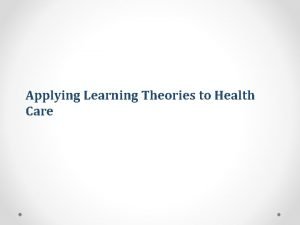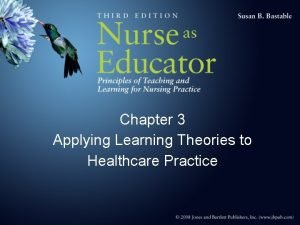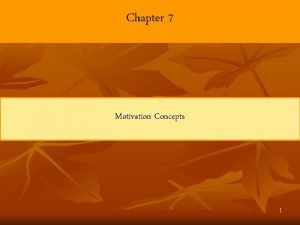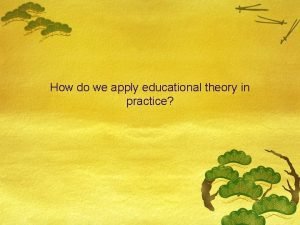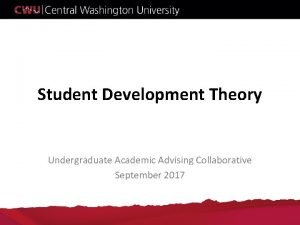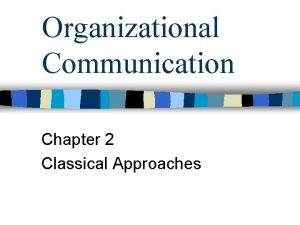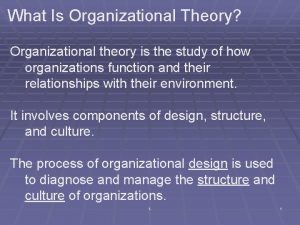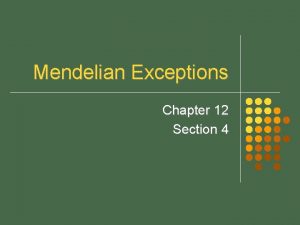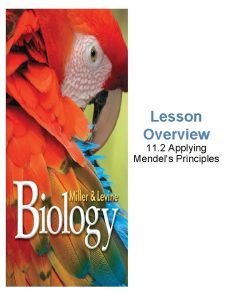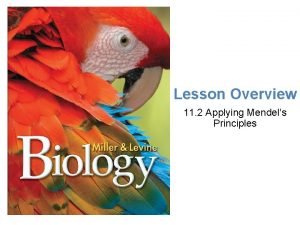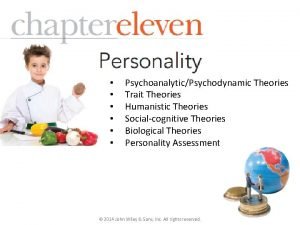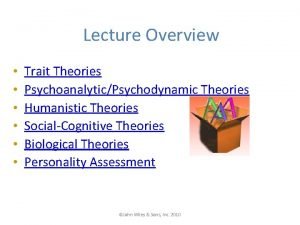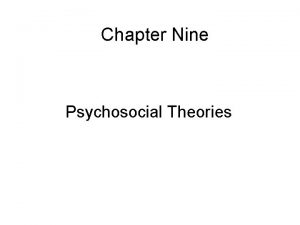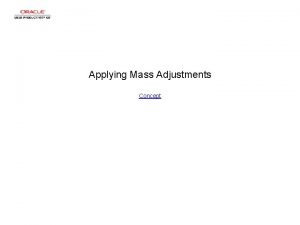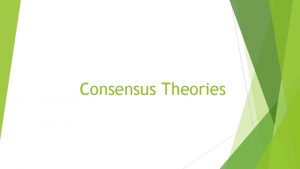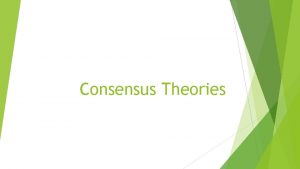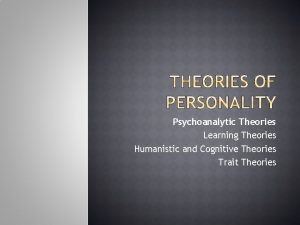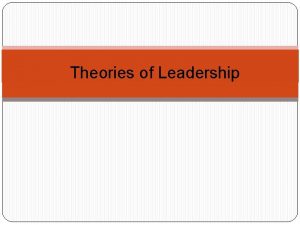APPLYING ORGANIZATIONAL THEORIES Chapter 4 Organizational Theory Overview











- Slides: 11

APPLYING ORGANIZATIONAL THEORIES Chapter 4

Organizational Theory Overview � In management practice, theories describe how organizations and the people within them function, how organizations maintain themselves, how power and resources are distributed in organizations, and how organizations interact with the surrounding environment

Classical Theories: Bureaucracy � Coined by theorist Max Weber, this structure includes: High degrees of specialization and impersonality, � Authority based on comprehensive rules rather than social relationships � Clear and centralized hierarchies of authority and responsibility � Prescribed systems of rules and procedures � Hiring and promotion based solely on technical ability � Extensive use of written documentation �

Classical Theories: Bureaucracy � The key elements of this theory are: � Equal treatment for all employees � Reliance on expertise, skills and experience relevant to the position � The position belongs to the organization, not the person � Specific standards of work and output � Extensive record keeping � Establishment and enforcement of rules and regulations that serve the interest of the organization � Recognition that rules and regulations bind managers as well as employees

Classical Theories: Scientific Management � This notion, founded by Frederick Taylor, believes that there is “one best method” for getting a job done, and all employees should adhere to it � “Taylorism” refers to the idea that employees are so stupid, they need to be told what to do in excruciating detail by their managers, who are always right

Classical Theories: Universal Management Principles � Penned by Henri Fayol, there are five basic functions of management: � Planning � Organizing � Commanding � Coordinating � Controlling � From these functions, a developed set of principles also contribute to the organization’s design, as will be reviewed on the next slide

Classical Theories: Universal Management Principles � The Principles are as follows: � Division of work: specialization of tasks and control of the number of people under each manager improves effectiveness and efficiency � Authority and responsibility” the person in authority has the right to give orders and the power to obtain obedience � Unity of command: no person should have more than one boss � Renumeration: pay should be fair and satisfactory. No one should be under- or over-rewarded � Esprit de corps: morale and good feelings are boosted by open communication & group cohesiveness

Human Relations Approaches � Studies conducted by Elton Mayo & others garnered the following beliefs about work: � Work is a group activity � The social world of the adult is primarily patterned about work activity � The need for recognition, security and sense of belonging is more important in determining workers’ morale and productivity than the physical conditions under which he works � A complaint is not necessarily an objective recital of facts, it is commonly a symptom manifesting disturbance of an individual’s status position

Human Relations Approaches � Cont’d: � The worker is a person whose attitudes and effectiveness are conditioned by social demands from both inside and outside the work plant � Informal groups within the workplaces exercise strong social controls over the work habits and attitudes of the individual worker � Group collaboration does not occur by accident; it must be planned and developed. If group collaboration is achieved, the human relations within a work plant may reach a cohesion which resists disruption

Open Systems Theory � Systems can be thought of as sets of elements that interact with one another so that a change in any one of those elements brings about corresponding alteration in other elements � About systems: �A perfectly adaptive system can respond to any change or contingency in the environment � All systems lie somewhere between non-adaptive and perfectly adaptive systems � In order to continue existing, any open system in a dynamic environment must adapt

21 st Century Approaches for the Helping Profession � Across the helping professions, services to consumers are increasingly characterized by: �A focus on client empowerment � An emphasis on clients’ strengths rather than their deficits � A recognition that service providers should carry out advocacy on behalf of clients who belong to oppressed or marginalized groups � A philosophy oriented to social justice
 Cognitive learning theorist
Cognitive learning theorist Applying learning theories to healthcare practice
Applying learning theories to healthcare practice Chapter 7 motivation concepts
Chapter 7 motivation concepts Applying educational theory in practice
Applying educational theory in practice Applying student development theory
Applying student development theory Classical approaches to organizational communication
Classical approaches to organizational communication Organizational design theories
Organizational design theories Andalusian chicken incomplete dominance
Andalusian chicken incomplete dominance 11.2 applying mendel's principles
11.2 applying mendel's principles 11.2 applying mendel's principles
11.2 applying mendel's principles Chapter 33 applying paints and enamels
Chapter 33 applying paints and enamels Chapter 12 lesson 2 applying mendels principles
Chapter 12 lesson 2 applying mendels principles
